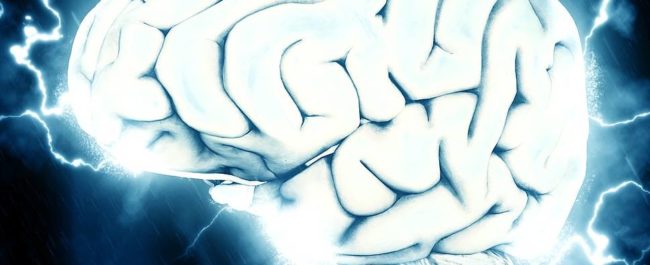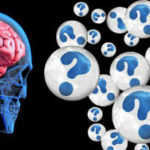Study Shows Alcohol Causes Brain Damage Even After Patient Stops Drinking
A new study performed by doctors in Spain suggests that brain damage caused by excessive alcohol consumption does not stop even if abstinence is started.
The Damaging Effects That Alcohol Can Have On The Brain
Most adult Americans enjoy an alcoholic drink on occasion knowing that they may experience side effects such as blurred vision, slowed speech, and slower reaction times depending on the amount of alcohol that is ingested. Typically, these symptoms disappear as the alcohol leaves the drinker’s system.
Unfortunately, alcoholism is a serious problem in this country. Nearly 14 million Americans abuse alcohol and the excessive consumption of alcohol can have long-lasting effects on the brain.
Take the following into consideration:
- Over time, the consistent consumption of excessive amounts of alcohol can actually decrease brain volume.
- Alcoholism is linked to a significant increase in the risk of dementia.
- Around 80% of all alcoholics are diagnosed with Wernicke-Korsakoff syndrome. This syndrome is caused by a lack of vitamin B-1 which cause brain lesions. Symptoms can include double vision, the loss of coordination, and a confused mental state that often pairs with aggressive behavior
- Alcoholism can cause serious permanent memory loss.
These are just a few examples of how the brain can be forever changed by alcohol. Previously it was thought that if a person stops drinking entirely they may be able to recover some function but a new study suggests that damage will continue to get worse even without additional alcohol consumption.
Researchers In Spain Study The Impact Of Alcohol On The Brain
Dr. Santiago Canals and a group of researchers recently examined 90 people with alcohol dependency. The majority of the participants suffer from their addiction so severely that they have had to be hospitalized due to their alcohol consumption.
Each participant was entered into a detoxification program where they were closely monitored and their consumption of alcohol controlled.
During the study, the group found that damaging changes to the white matter of the brain continued for a full 6 weeks after the participants stopped drinking. This can impact the way that the brain communicates with the body.
The findings of this study contradict the idea that once a person stops drinking the damage to their brain also stops.
Other Negative Health Impacts Of Alcohol Consumption
Alcohol impacts more than just the brain. It interferes with your body’s balance and can lead to serious diseases like cirrhosis, cancer and even Alzheimer’s. It has also been medically proven that alcohol can speed up the aging process. Indeed, the lesser the amount of alcohol consumed, the better.
Your brain is the storehouse for all your emotional, psychological and physical experiences. Every time you go through an unpleasant experience, the brain imprints the memory in your brain. The problem comes when you drink too much alcohol. Repeated drinking affects the delicate balance between the brain and the nerves. This makes your brain forget important things and experience unpleasant feelings.
It has also been medically proven that alcoholics have a decrease in their IQ, compared to non-alcoholics. This means you can be a genius but still become a victim of the effects of alcohol. Not only this, alcoholics are more likely to develop depression and even commit suicide. These are not your normal feelings and behaviors. You have every right to feel sorry for yourself and try to find help for your condition.
Besides causing personality and behavior problems, alcohol abuse can also put your health at risk. It is important that you do not over-consume alcohol because it is known to trigger problems such as cancer and liver failure. Too much alcohol can also cause high blood pressure, problems with your vision, and damage to the brain and liver. As a result, you will have increased risks of heart attack and stroke. If you have any of these issues already, then they can be greatly exacerbated.
Another major effect of alcohol is on the body. It is known that excessive drinking can lead to the weakening or the destruction of your liver. You may begin to feel nauseous and may suffer from severe vomiting. There are also some effects that are both serious and irreversible. Too much alcohol intake may also lead to diabetes.
In the moment, alcohol also causes some serious effects to the body such as disorientation and unconsciousness, which are commonly referred to as blackouts. People who are heavily drunk often do not remember things that happened hours ago. Lack of coordination is another problem that may come as a result of alcohol abuse. This can cause a lot of problems, especially when driving.
Alcoholism is a chronic disease characterized by compulsive and uncontrolled consumption of alcohol. Alcoholism can be treated through professional help and medication. Treatment centers are available for anyone who wants to get alcoholics help. However, prevention is always better than cure. You should try to avoid drinking alcohol whenever possible.
Getting Help For Alcoholism
If you or a loved one are struggling with an addiction to alcohol, you aren’t alone. You can get help. There are steps you can take to get sober.
- Speak with your doctor. Your doctor will have a list of recommended treatment centers in your area and can help you pick the one that is the best fit for you. If possible, find a treatment program that includes a detox program.
- Join a support group. There are hundreds of support groups, such as AA, which can help you on your journey.
- Consider a sober living home. These homes offer a safe space as you continue to transition to a sober lifestyle.
- Speak with a therapist. One on one therapy can be extremely helpful for those who are fighting with addiction.
Don’t ever be afraid to ask for help. You can begin to live a healthier life today.







